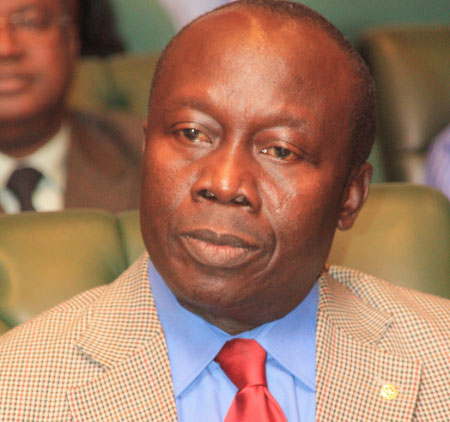
The Government of The Gambia with support from John Deere Company Limited based in the United States of America is building the capacity of fifty farmers in The Gambia on tractor operators.
The training programme geared towards improving the Agricultural mechanization programme has a life-span of three years.
In giving an overview of the project background, Siobhan Franklin, John Deere Company’s focal person, said the company is an international farm equipment supplier headquartered in the US.
She revealed that the company has been working on agriculture for the past 175 years.
“This project is a partnership between John Deere and the Government of The Gambia, through the initiative of President Jammeh with the ultimate aim to increase productivity through mechanization,” she said.
According to her, the aim of the training is to increase productivity. She said John Deere was very lucky to be the selected partners of this programme to be supplying equipment, facilitating the training as well as providing servicing packages for the tractors.
The training is carried out to enable the participants to utilise the equipment properly in their communities for the good of the Gambian people.
In his official opening remarks, the minister of Agriculture, Solomon Owens, said despite the long history of mechanization in The Gambia, through the use of both animal traction and tractors, manual labour still remains the predominant method of cultivation, harvesting and processing.
“Today, the tractor fleet is estimated at 750 units and is almost equally divided between 2-wheel and 4-wheel tractors of up to 80HP,” Minister Owens said. “This gives a tractor density of two units per 10,000 hectares of arable and permanent cropped land. This fleet makes only a minor contribution to total farm power supply of one percent, meaning ninety-six of existing total farm power comes from manual labour.”
He therefore said that with the growing labour shortage as a result of the rural-urban migration, the need to improve agricultural production and productivity would have to come from improved and increased use of mechanization, the agriculture minister said.
Minister Owens said the Government of The Gambia, in partnership with John Deere Limited, “a renowned company in agricultural mechanization”, is embarking on a mechanization project aimed at improving the productivity of small-scale growers.
The agriculture minister noted that the use of appropriate mechanization would bring about increased production efficiency and timely operations, as well as lead to increased production.
He then hailed the Gambian leader for this wonderful initiative, an ardent supporter of the country drive towards achieving sustainable agricultural development.
He said that in the spirit of a public/private partnership approach, in early 2012, President Jammeh prevailed upon John Deere, to deliver to The Gambia, full range of mechanization packages for a period of three years.
According to Minister Owens, the effective and efficient operation of tractors would require the acquisition of the perquisite skills, which necessitated the structured training programme.
The government is purchasing from John Deere 65 units, being 75 HP tractors with ploughing harrowing, planting, a PTO pump, spraying and harvesting equipment.
A further 18 units is also being purchased, being 65 HP tractors with trailers to enhance agricultural transportation inputs and farm produce.
“This makes it a total of 82 tractors for a total government investment of D155 million,” he remarked.
The minister also said the programme aims to reach about 450 medium-scale farmers in the West Coast Region through the regional agricultural directorate.
An expansion of the programme would aim to reach about 500 more farmers in the remaining 5 agricultural regions over the next 4 years.
It is envisaged that the programme with a built-in irrigation component would have the potential of making a significant contribution to bring a solution to the frequent food crises in The Gambia
The project would also have the potential of ensuring that the medium- and small-scale farmer in The Gambia is given the opportunity to achieve increased household food to realize national food security.



